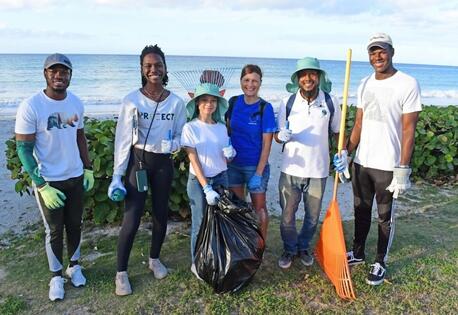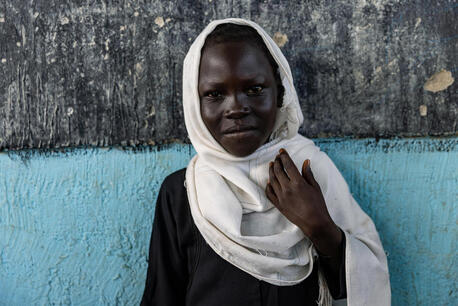Congress Passes Annual Funding for UNICEF: What Else Comes Next?
As global needs continue to outpace available resources, Congressional support for critical development programs and humanitarian aid is more important than ever.
This week, Congress returns from a two-week recess. This break comes after actions in late March that not only prevented a partial government shutdown, but also finalized budgets that will positively impact the lives of children around the globe.
The approved Fiscal Year 2024 State, Foreign Operations and Related Programs (SFOPS) funding package included the U.S. Government’s $137 million voluntary contribution to UNICEF’s core resources, flexible funding that can be used to meet the most pressing needs of children globally and funding to continue strengthening systems that are essential for their care and protection.
UNICEF USA is grateful to our dedicated supporters who have advocated for this critical funding over the past year, and to UNICEF’s Congressional champions who are ensuring children’s growing needs are considered. This funding will help ensure children everywhere are healthy, educated, protected and respected.
“Policy change and sustained funding is critical for the protection and fulfillment of child rights. Today, we recognize the U.S. Congress' contributions for children in the U.S. and around the world by passing the FY24 appropriations bill, including $137 million to UNICEF's core resources. My thanks goes out to our champions in Congress for their bipartisan support, and our UNICEF USA supporters for their continued relentless advocacy to secure essential resources for UNICEF and funding for the development and well-being of children everywhere.” — Michael J. Nyenhuis, UNICEF USA President and CEO
Beyond the U.S. contribution to UNICEF’s core resources, multiple portions of the funding bill benefit children:
$10 billion for global health, including a slight increase in funding to Gavi, the Vaccine Alliance and funding allocated to scale the procurement of Ready-to-Use Therapeutic Food (RUTF), unlocking support for the millions of children suffering from severe wasting in non-emergency contexts
$20 million to end child marriage
$5 million specifically for the UN Joint Programme on the Elimination of Female Genital Mutilation (FGM)
One-year extension of the U.S. President’s Emergency Plan for AIDS Relief (PEPFAR)
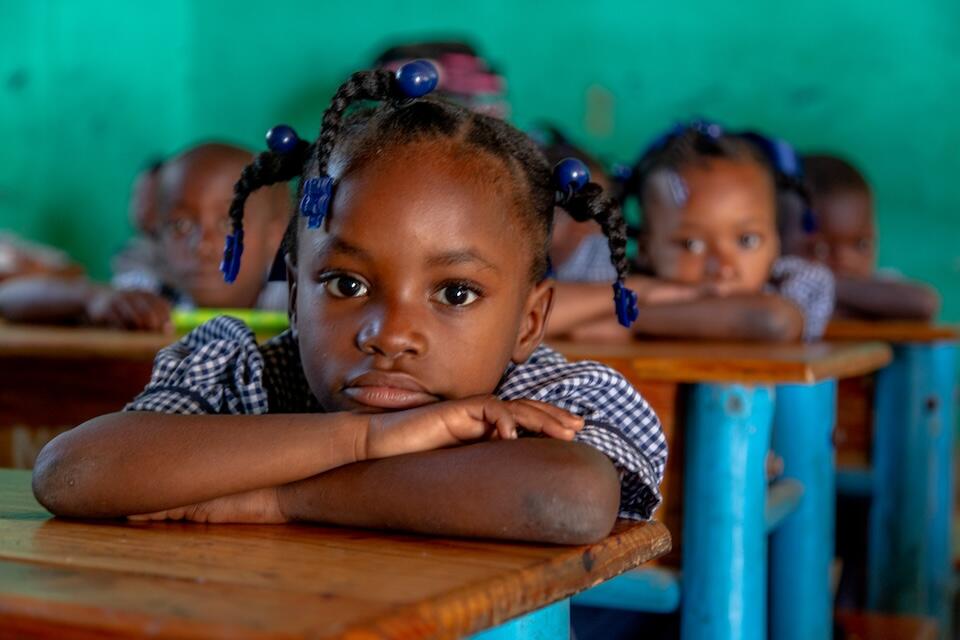
Beyond global support, Congress supported key investments in other U.S. funding accounts that will support children, youth and families across the nation, including:
$8.75 billion for the Child Care Development Block Grant and $12.3 billion for Head Start programs providing support to working families to access child care and improve the quality of child care for all children
$174 million for school-based mental health services grants and mental health service professional demonstration grants
$33.2 billion for child nutrition programs which includes funding for but not limited to school lunch, school breakfast, and summer EBT programs
$7 billion for the Women, Infants and Children (WIC) program which provides nutritious foods, supplement diets and other healthy eating tools to women and children under 5
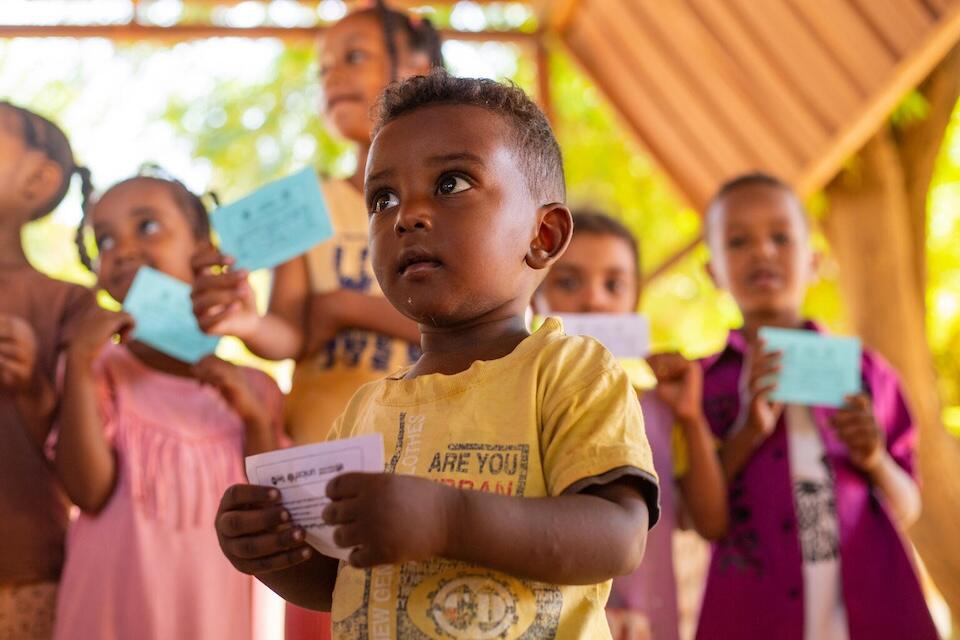
While it is promising to see Congress prioritize children’s well-being and provide increases to humanitarian aid, the overall 6 percent reduction in the SFOPS bill, including concerning cuts to critical development programs, will translate to more — and likely more costly — emergency response needs in the future. We urge Congress to prioritize development accounts for Fiscal Year 2025 while also ensuring humanitarian response accounts are well resourced as growing global needs continue to outpace available resources.
Children around the globe need critical support now more than ever before.

Through 2023 and into 2024, the world has witnessed unprecedented levels of humanitarian need. More than 360 million individuals require assistance, a 20 percent increase from 2022, and 1 in every 6 young people are living in or fleeing from conflict zones. These children face grave risks: physical harm and trauma, displacement, separation from their families and lack access to basic education and health services.
Crises around the world are putting children and adolescents in danger:
The war in Ukraine has robbed the country’s 7.5 million children of stability and safety
Over 1 million children are in need of humanitarian assistance in Gaza and the West Bank, with children there and in Israel experiencing terrible trauma from the ongoing crisis – the consequences of which could last a lifetime.
Sudan is now the largest child displacement crisis in the world, with 13,000 children displaced every day for the last 300 days
The escalating crisis and violence in the Democratic Republic of the Congo has put children at increasingly high risk of harm and vulnerability to recruitment and use by armed groups
In Haiti, nearly 3 million children are in need of humanitarian assistance. With basic services on the verge of collapse, half of those in need aren’t getting it due to insecurity and insufficient humanitarian funding.
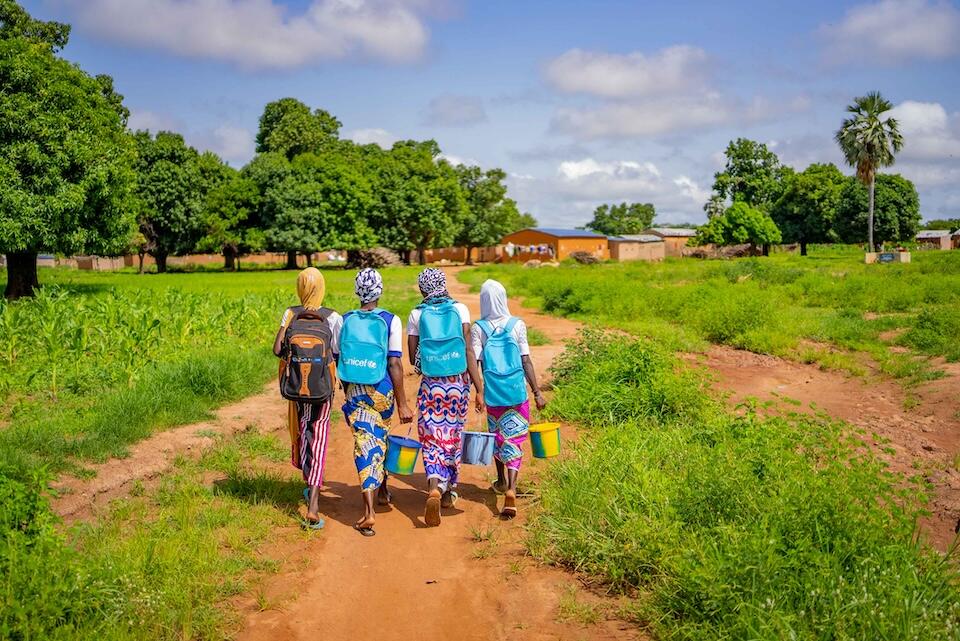
UNICEF responds to over 400 emergencies each year and is present in 190 countries and territories. But current needs go beyond available funding and UNICEF cannot meet them alone.
In February, the Senate voted in support of $9.2 billion in emergency funds for global humanitarian aid to enable critical, lifesaving support like access to nutrition, safe water and protection to children in need. Now we are relying on the House to do the same.
We appreciate the leadership Congress has demonstrated in providing critical resources that will make an impact for children. Now is the time to double down on that commitment in providing urgent humanitarian assistance support for children and families in need around the world, and also prioritizing support for development accounts in Fiscal Year 2025. Act now.
